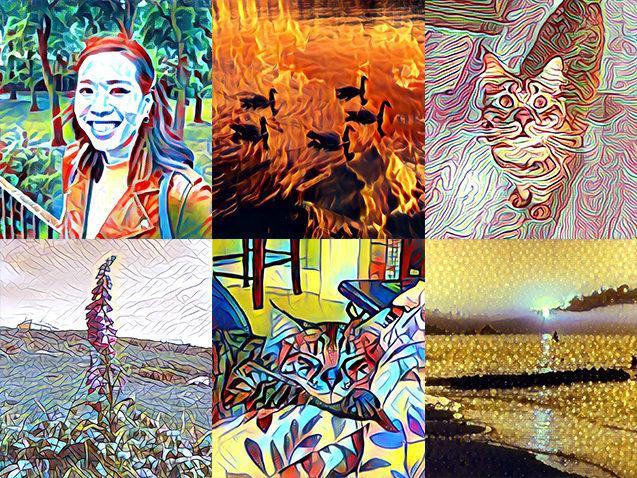Pixelated Picasso: Microsoft Pix lets you turn your photos into art

Pix Styles feature for Microsoft Pix. Image: Microsoft Corporate Blogs via AFP Relaxnews
Microsoft Pix has added a feature to its AI photo-editing app that lets users make art from their iOS photos, the result of a collaboration with Microsoft’s Asia research lab and Skype.
In a bid to rival competitors like Apple’s Prisma and a host of independent apps, Microsoft has rolled out updates to its Microsoft Pix application, called Pix Styles. Users can choose from a variety of artistic styles and apply them to their own photos, taken by their iPhones or iPads in variable levels of intensity.
From filters to a digital paintbrush
Unlike photo filters, which simply modify the colors of a photo, these options allow the user to transfer tone, texture and styles onto the photo itself. Eleven styles are available in all, from Van-Gogh-style Post Impressionist swirls to Pointillism-like dots and even fiery flames, with more to come in the coming weeks. The intensity of the style can also be chosen by the user. Pix Paintings, a fun but not necessarily very useful feature of the update that is nevertheless unique to Microsoft Pix, also lets you see the photo being transformed into the work of art, stroke by stroke.
A.I. goes to art school
The artificial intelligence’s algorithm uses a “deep neural network” to learn and apply the different styles to the photo. Microsoft’s Josh Weisberg explains that “In the past, a lot of our efforts were focused on using AI and deep learning to capture better moments and better image quality. This is more about fun. I want to do something cool and artistic with my photos.”
The future of digital art
Art and digital are increasingly working together, especially in the murky world of copyright. Recently, for example, developers at Larva Labs have been experimenting with a project called CryptoPunks: 10,000 simple pixelated images that have been turned into art by building them with a unique code linked to the blockchain-based Ethereum platform. This means the artwork retains its ownership even if copied.
Applications such as Prisma, and now Microsoft Pix, allow users insight into the realm of digital art, which has taken off in recent years and achieved real credibility, thanks to the work of artists such as Karl Sims and Bruce Branit. Perhaps our phones are tomorrow’s new easels. JB
RELATED STORY:
Instagram introduces ‘archive’ feature, allowing users to hide photos